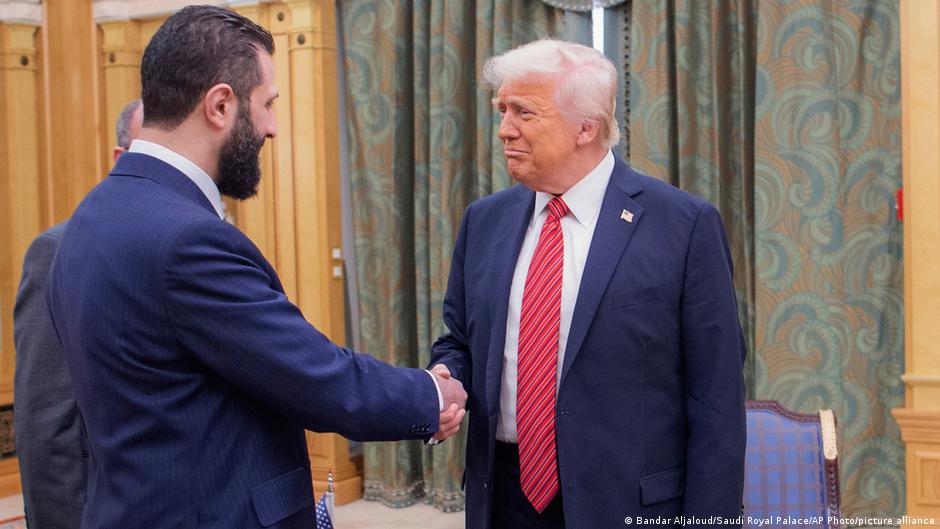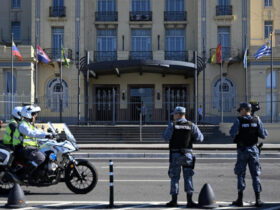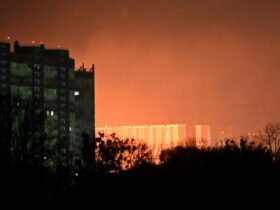Syria’s interim President Ahmed al-Sharaa arrived in the United States on Saturday for an official visit that includes a scheduled meeting with President Donald Trump next week, a diplomatic gesture previously unthinkable.
Al-Sharaa’s arrival came a day after the US removed the Syrian president from its terrorism sanctions list, just a day after the UN Security Council lifted similar sanctions.
Al-Sharaa led the Hayat Tahrir al-Sham terrorist group, previously affiliated with al-Qaeda, the US-designated terrorist group that overthrew Bashar Assad’s regime last year.
Shortly after Assad was ousted from power in December 2024, the US withdrew a $10 million (€8.6 million) reward previously offered for al-Sharaa’s arrest.
In May, Trump signed an executive order to end US sanctions on Syria, aimed at boosting the country’s war-ravaged economy, and met with al-Sharaa for the first time in Saudi Arabia.
Al-Sharaa was also in New York in September and was the first Syrian president to address the UN General Assembly in decades.
Nevertheless, analysts told the French AFP news agency that his official visit to the White House is considered the first by a Syrian president since the country’s independence in 1946.
Al-Sharaa’s White House visit: What’s on his agenda?
The Syrian President is scheduled to meet Trump on Monday.
Earlier this month, US envoy to Syria Tom Barrack said it was expected that al-Shar’a would sign an agreement to join the US-led coalition against the Islamic State terrorist group.
The US is planning to establish a military base near the Syrian capital, Damascus, a diplomatic source in Syria told AFP. The purpose of the base is to “coordinate humanitarian aid and observe developments between Syria and Israel,” AFP quoted an unnamed source as saying.
Al-Sharaa is also widely expected to seek US funding for Syria’s reconstruction, with the World Bank estimating the cost at $216 billion, and describing that figure as a “conservative best estimate”.
What is the current situation in Syria?
Since ousting Syrian dictator Bashar al-Assad from power last December, Syria’s new administration has been trying to distance itself from its militant past as it builds new alliances with Western powers.
Al-Sharaa’s government has stressed that it is pursuing a moderate leadership that respects the country’s many minorities.
However, the past year witnessed several incidents of communal violence between various minority groups.
Meanwhile, experts have raised concerns over reports of targeted killings in recent months, as the country struggles to leave behind its deeply polarized 13-year civil war.
Edited by: Roshni Majumdar






Leave a Reply